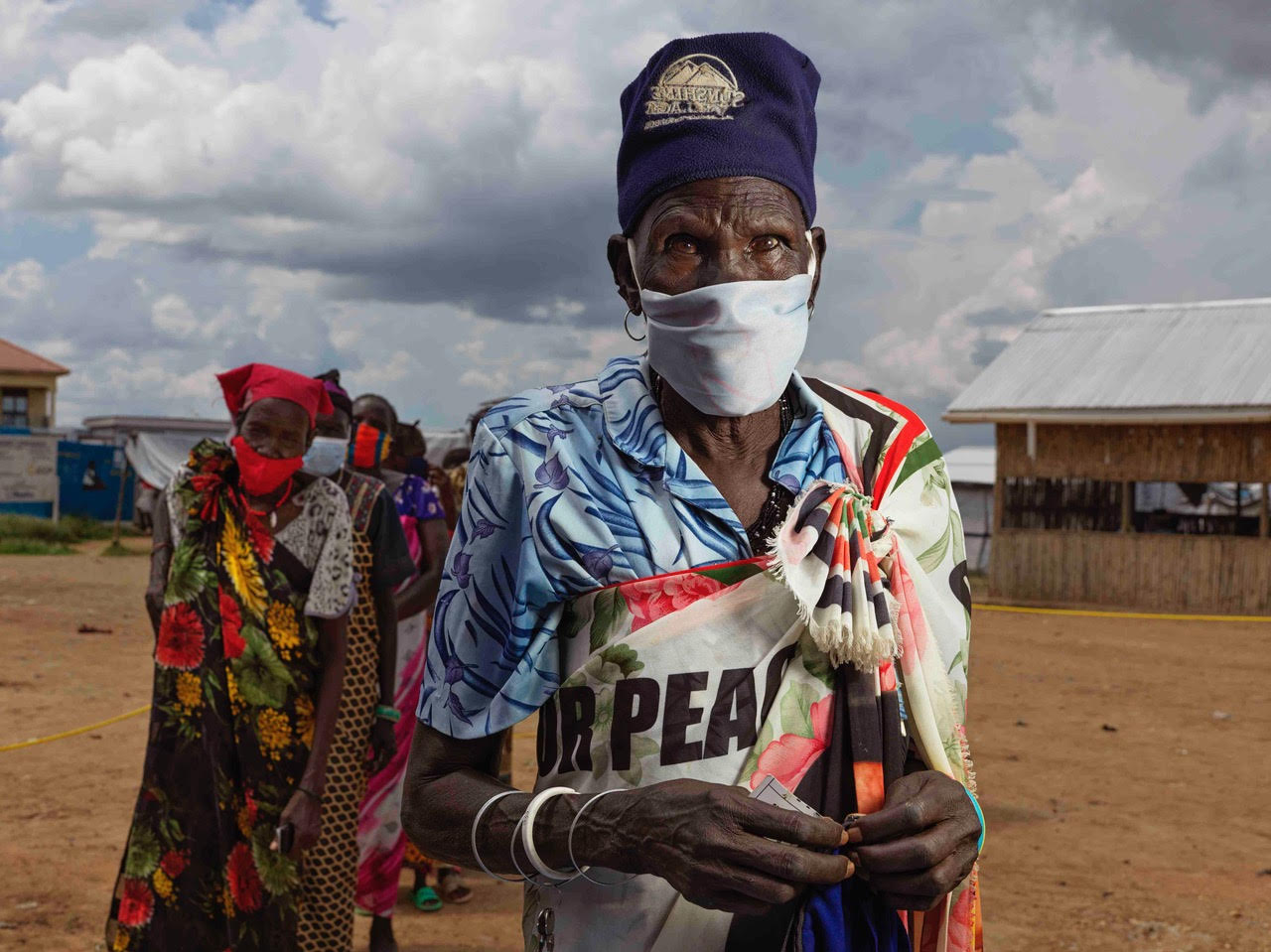The impact of COVID in a South Sudan camp – Teresa’s story
When the conflict in South Sudan forced Teresa Nyegiery to leave her home, she walked without stopping for seven days to save her family. The journey from her home in Mayom to a site in Juba was perilous but necessary. Earlier this year, we spoke to Teresa about her experiences and the impact of COVID-19 on her current situation.

In 2013, the devastating conflict in South Sudan led to widespread displacement and much of the population were forced to flee into camps for internally displaced people (IDPs). This included Protection of Civilian Sites (PoCs) as well as collective sites such as Mangateen Camp, which were set up at the beginning of the conflict.
Teresa had lost three of her children at the start of this civil war and only her daughter survived. Together they continued to flee the violence, stopping along the way to try and settle but were continuously forced to move on due to encroaching armed conflict.
"Every year people were fighting. When people settled in a new place war came again and we ran away so we didn't die" says Teresa, recalling that at the time she "had no food and rain was the only source of water." When Teresa and her daughter arrived in Juba they had no money to buy food "so I just went hungry and thirsty," she explains.
When conflict reached Juba too, Teresa fled to Mangateen camp, living with thousands of other people who were also forced from their homes. She has lived there ever since, relying on aid and trying to bring back some normality to a life that has been turned upside down.
But the outbreak of COVID-19 has brought back old fears of thirst and hunger to Teresa.
"When coronavirus came the things we did normally, we had to stop. We couldn't meet other people, water wasn't there and we had no food," says Teresa, "in the community people were afraid of coronavirus but because they couldn't do anything, they would sit idly at a distance."
The need for food was stronger than the fear of COVID-19 says Teresa, explaining
"during coronavirus I would go out of the camp looking for food and some vegetables on the ground to bring back so that we could eat."
The absence of clean latrines as well as hygiene products, like soap, to protect against the virus has made life more difficult during COVID-19. Teresa told us because there were no medicines if she got ill, it was better to keep herself clean to avoid infections.
What we're doing
Over the last few months, Age International, through partners, has been working in Managateen camp and others like it, to help older people overcome the additional hardships brought on my COVID-19. We’ve reached thousands of older people like Teresa with food, masks, and hygiene kits within the camps.
Help us to continue supporting older people around the world
Whether with better healthcare, a secure income or life-saving aid – your gift could help change lives.
 Follow us on social media
Follow us on social media
Keep seeing our stories or ask us a question - connect on Facebook and Twitter.
